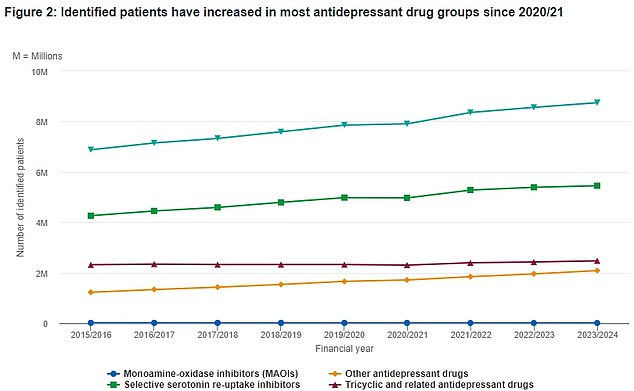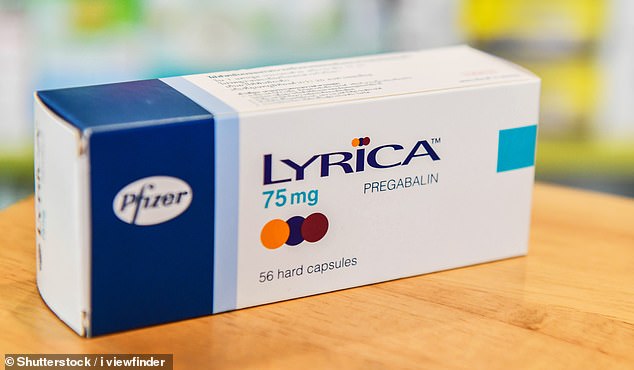Scientists have discovered a way to predict who is most at risk of depression, new landmark research suggests today.
World-renowned experts found almost 300 genetic variants related to the disease that until now were unknown to scientists.
They join more than 400 genetic links previously identified as increasing the risk of depression, meaning the number of DNA patterns thought to cause the condition has almost doubled.
The scientists, who followed more than five million adults worldwide, said the British-led study offers more hope than ever that mental illness can be tackled by new drugs targeting specific genetic variations.
Experts added that this could be achieved through already available medications, such as those used to treat chronic pain.
Professor Cathryn Lewis, co-leader of the study from the Institute of Psychiatry, Psychology and Neuroscience at King’s College London, said: “Depression is a highly prevalent disorder and we still have a lot to learn about its biological underpinnings.”
«Our study identifies hundreds of additional genetic variants that play a role in depression.
“These findings open avenues for translation into better care for people with depression.”
World-renowned experts found almost 300 unknown genetic variants related to this disease. They link together more than 400 genetic links, which experts have previously identified as increasing a person’s risk of depression.
Professor Andrew McIntosh, co-leader of the study from the Center for Clinical Brain Sciences at the University of Edinburgh, added: “There are huge gaps in our understanding of clinical depression which limit opportunities to improve outcomes for those affected.”
The latest survey figures from the Office for National Statistics show that one in six Britons report moderate or severe depressive symptoms, up 60 per cent on the previous three years.
This skyrocketing rise has been variously attributed to the increasing mental pressures caused by the Covid lockdowns and the subsequent cost of living crisis.
Separate data also shows that around 8.6 million people in England were taking an antidepressant in 2022/23: almost a fifth of all adults.
More than half of those taking antidepressants in England have been taking them for at least a year.
In the study, researchers from the University of Edinburgh and King’s College London tracked genetic data from more than 5 million adults in 29 countries.
They found a total of 697 genetic variants linked to depression, almost half of which have never before been associated with the condition.

This NHS data shows the number of Brits taking each type of antidepressant medication over the past eight years. The line with the green triangles indicates the total number of patients.

The researchers said the findings offered new insights into possible new treatments for depression. One, pregabalin, sold under the brand names Lyrica, Alzain and Axalid, could be reused.
Of these, 100 were identified because the research included people of African, East Asian, Hispanic and South Asian descent, the scientists said.
Until now, studies have focused mainly on European adults.
The genetic variants identified were linked to neurons throughout the brain, including in areas that control emotions.
Writing in the diary, CellResearchers said previously unknown genetic links to the condition would allow scientists to predict depression risk.
Each genetic variant has a very small effect on the overall risk of developing depression; However, if a person has multiple variants, these small effects can add up, increasing their risk.
It also offered new insights into possible new treatments, they added.
These include existing drugs Pregabalin, used for chronic pain, and Modafinil, used for narcolepsy, which are being repurposed for the treatment of depression.
However, they cautioned that more studies and clinical trials would first be needed to explore the drugs’ potential in patients with depression.
The UK’s medicines regulator, the Medicines and Healthcare products Regulatory Agency (MHRA), is currently reviewing 30 antidepressants, including citalopram, sertraline and mirtazapine, after families raised concerns about the loss of loved ones.
Since 2014, the MRHA has received more than 71 alerts about deaths related to the antidepressant citalopram and 114 alerts about fatal adverse reactions related to sertraline.


